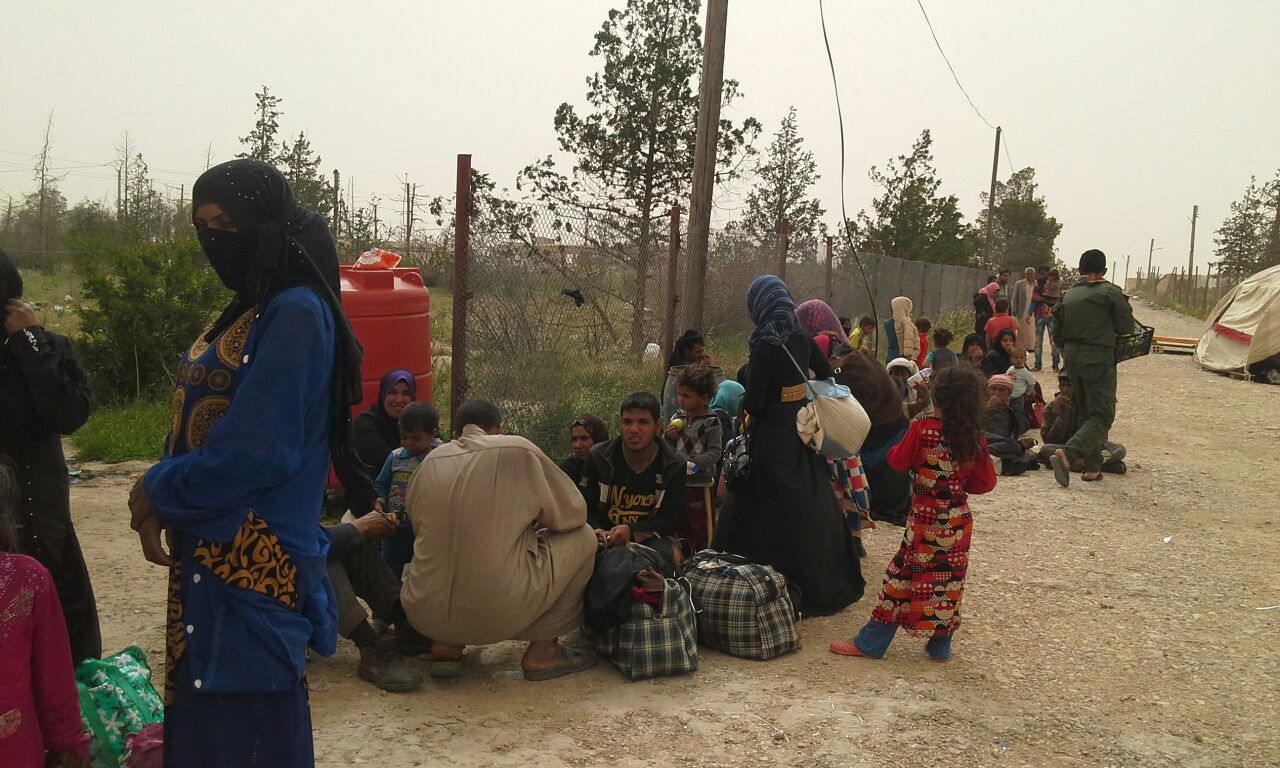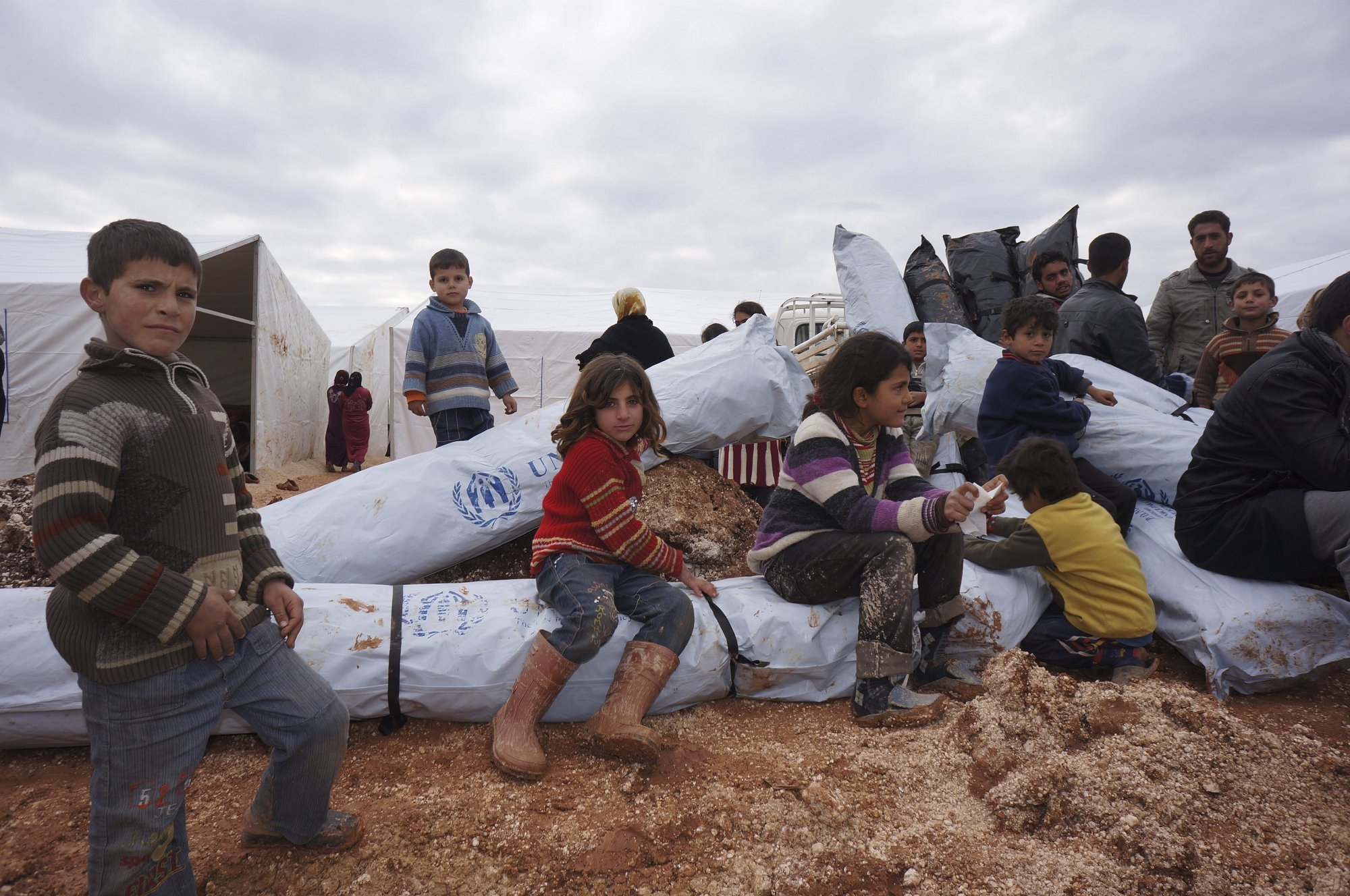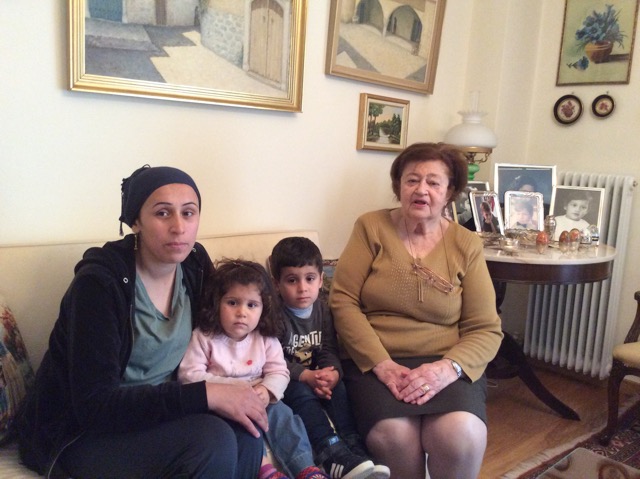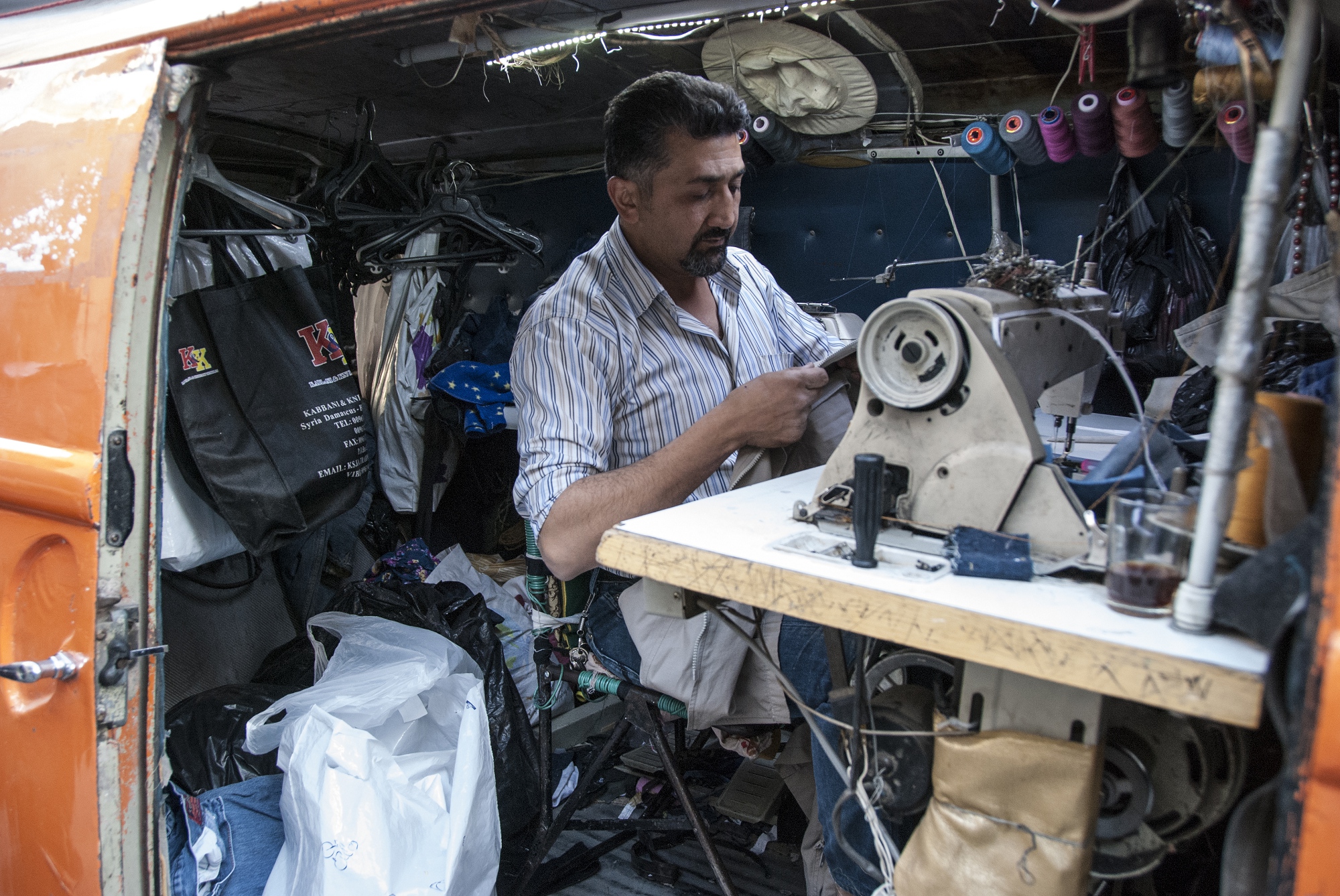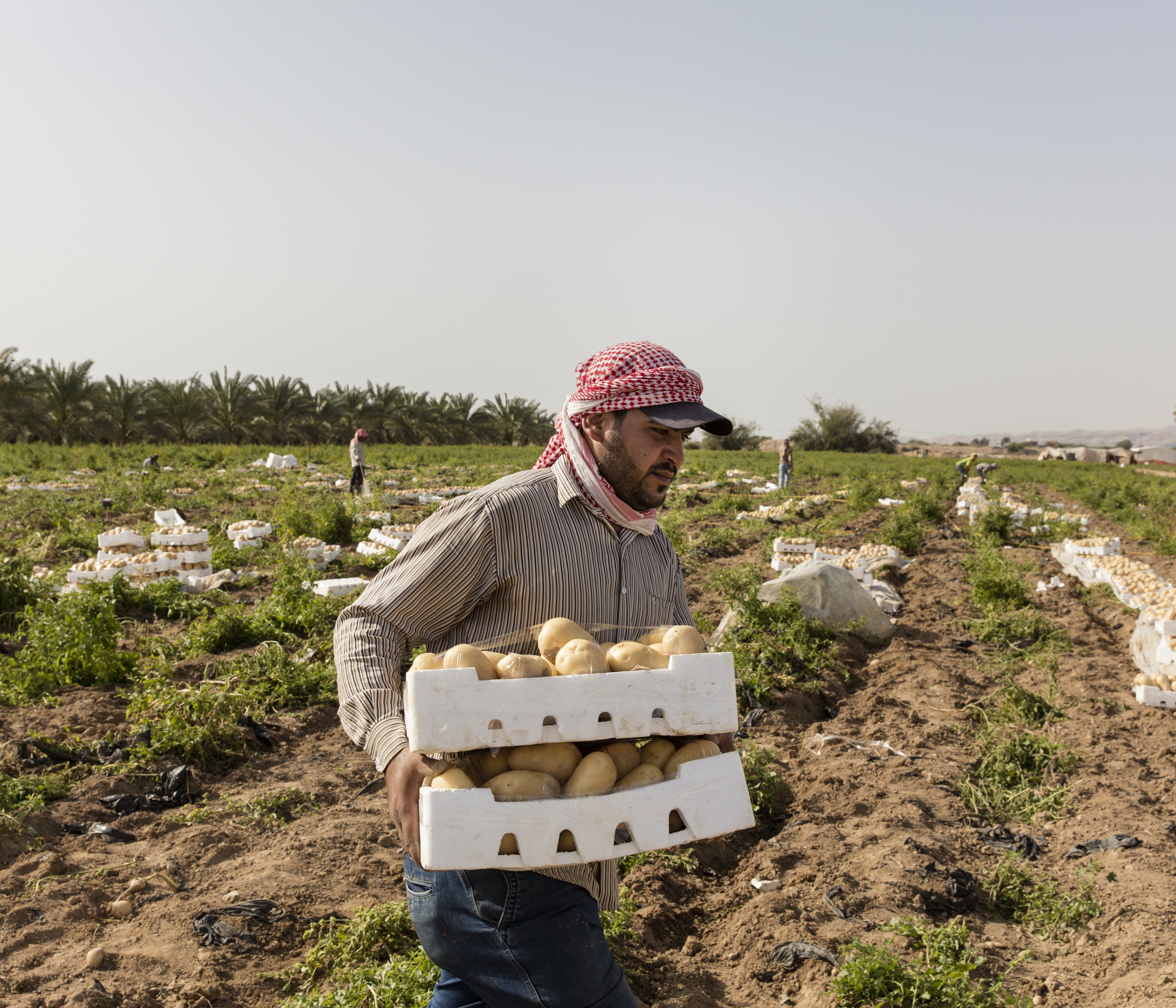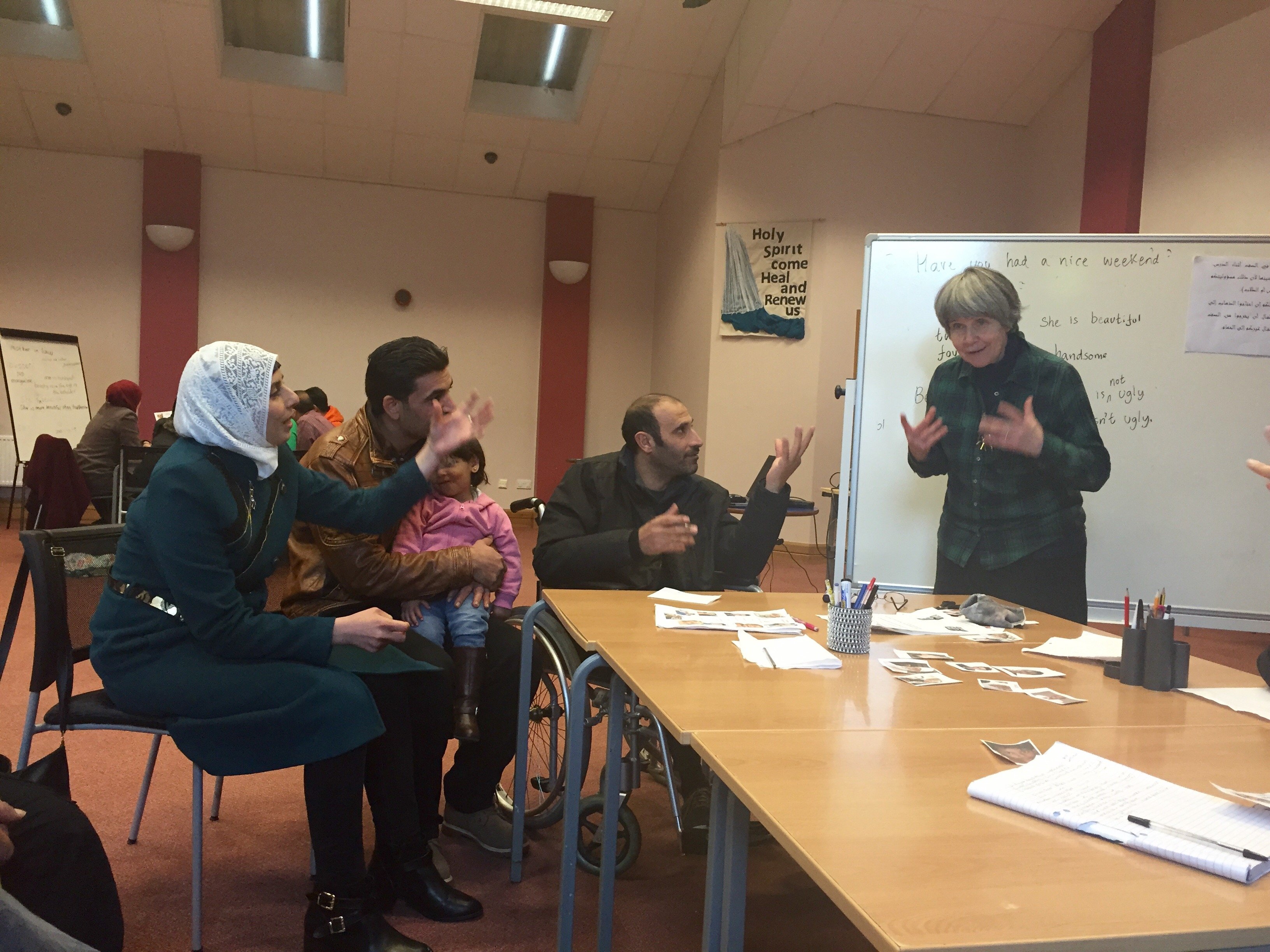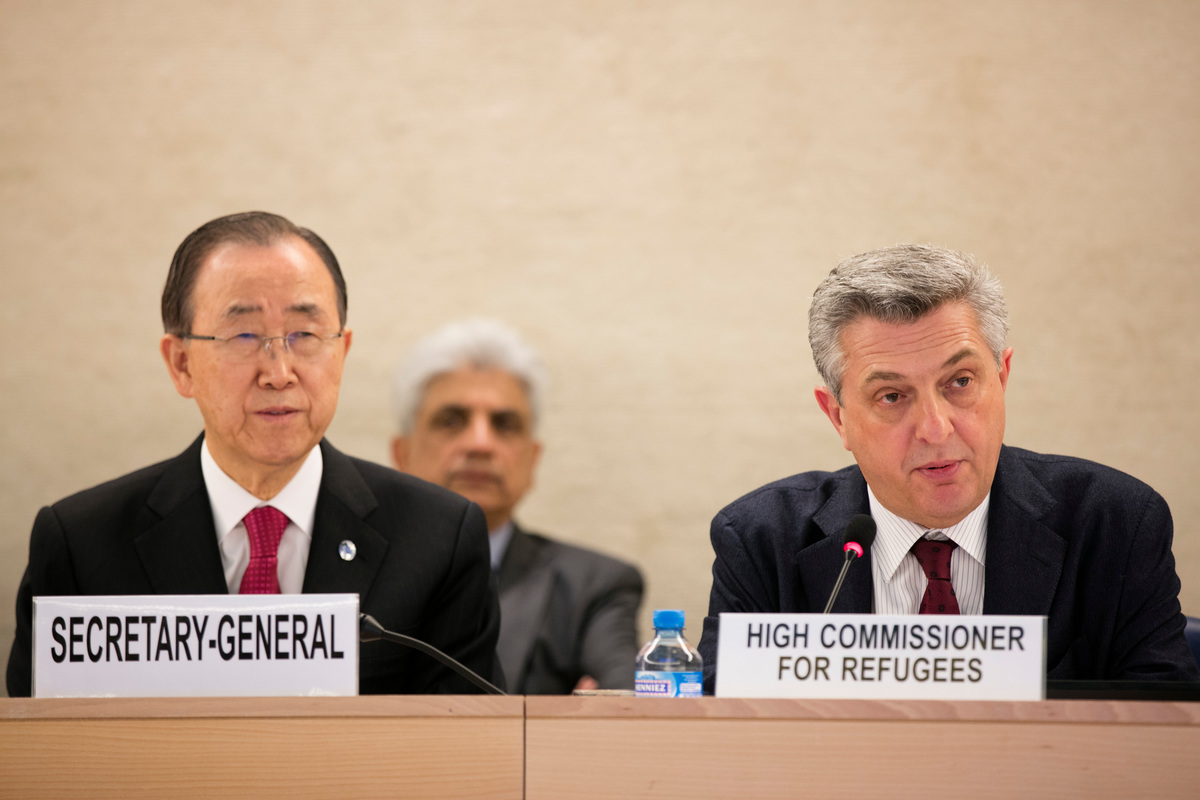Thousands of Syrian refugees arrive in Iraq, many with special needs
Thousands of Syrian refugees arrive in Iraq, many with special needs

DOHUK, Iraq, September 30 (UNHCR) - She's only four years old, but Syrian refugee Magi can't shake off the sounds and images of war that forced her family to flee the embattled northern city of Aleppo and seek shelter in northern Iraq.
"I can't sleep at night; I still have images of soldiers shooting from the roofs of the buildings," whispered the traumatized young girl in her family's tent at the Domiz refugee camp in Dohuk governorate. "There was rocket fire everywhere and we were really scared," added her mother, Rojin.
"There were power cuts all the time in our building and prices went up significantly," she continued. "It was impossible to buy bread and oil, shops were always closed and Magi was crying because she was hungry, so we decided to flee the country."
Magi and her mother are among some 34,400 Syrian refugees who have arrived in the Kurdistan Region of Iraq since the Syrian conflict erupted in March last year. And they continue to come, with an average of 500 people reaching Domiz every day.
Many of the children arrive suffering from trauma similar to Magi's and struggling to get the horrifying images out of their young minds. UNHCR met several children in need of professional support as well as participation in social activities to help them cope in their new, unfamiliar environment.
Such vulnerable cases are of particular concern to UNHCR and the Government of Kurdistan Region (KRG), which work together to provide support and counselling for children suffering from post-traumatic symptoms such as nightmares, anxiety attacks and painful memories.
In Domiz, UNHCR identifies cases of traumatized children and refers them to the camp's mental health unit, which is run by the KRG's department of health. Here, experts provide psychological counselling and support to the children and their families as well as follow up on their mental health situation.
Growing numbers of Syrians arriving with no economic resources and opting to stay in the camp and seek assistance are putting increased pressure on services in all sectors, including food, shelter, water and health care.
The new arrivals, including Magi's family, are living in transit areas while the infrastructure of the camp is being expanded to cope with the growing influx. It currently provides shelter to some 14,500 refugees. "It is difficult to live in a tent," said Rojin, adding: "We will never return."
The anxious mother said she hoped life in the camp would help her child "soon forget the trauma of war." Her husband is seeking work in Dohuk.
The Kurdistan Region of Iraq continues to welcome Syrian Kurdish refugees and facilitate their integration and freedom of movement by issuing residency permits and providing access to public services.
As of early October, some 34,400 Syrian refugees have been registered in Iraq's Kurdistan Region. Duhok governorate hosts the largest number with more than 27,000 people, followed by Erbil (5,852) and Suleimaniya (1,683).
By Jerome Seregni in Dohuk, Iraq

